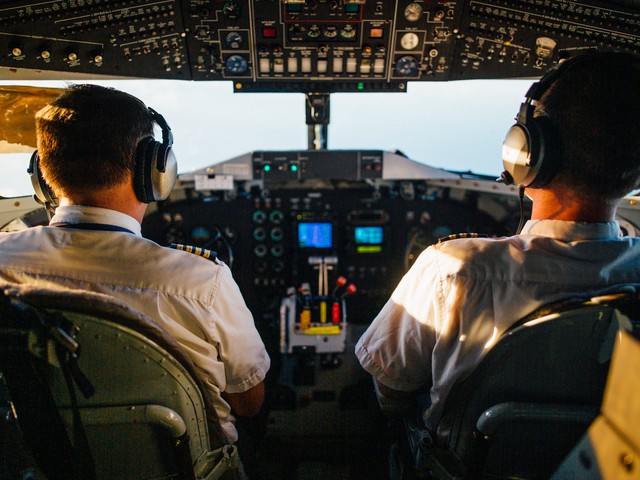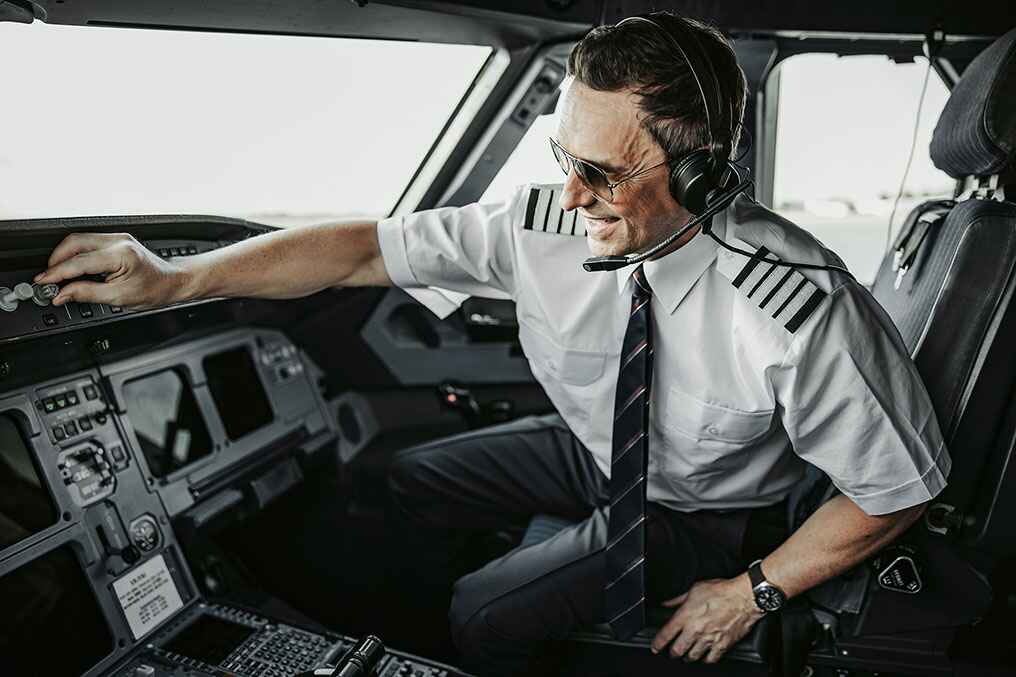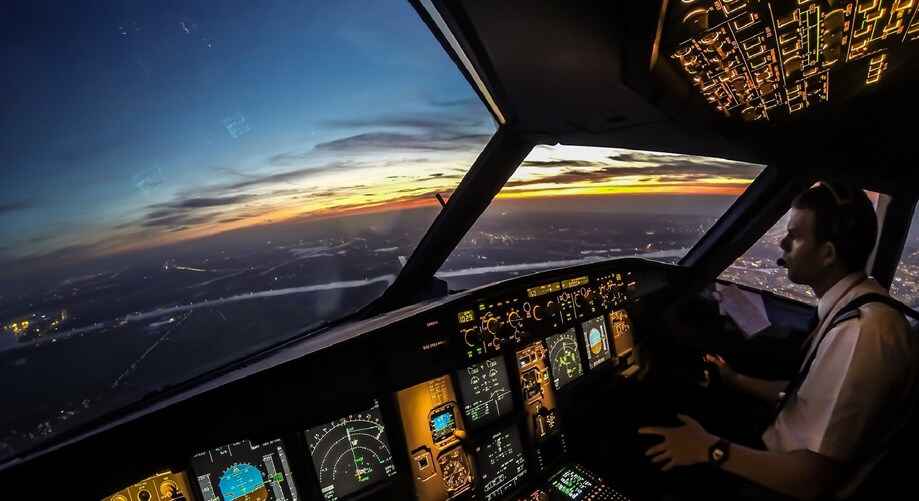Airline pilots are highly trained professionals responsible for flying passengers and cargo safely across various destinations. They operate and navigate commercial aircraft, ensuring the highest safety standards are met while adhering to strict regulations. Have you ever wondered How Much Do Airline Pilots Make, what benefits they get, and what are the Costs of Becoming an Airline Pilot, if yes then this is the right place for you.
Importance of Airline Pilots in the Aviation Industry
Airline pilots play a crucial role in the aviation industry. They are the backbone of air travel, connecting people and goods globally. Their expertise and decision-making skills ensure the safety and efficiency of flights, making them indispensable to airlines and passengers alike.
Overview of Pilot Salary Trends
Pilot salaries have seen significant changes over the years. Various factors, including industry demand, economic conditions, and airline profitability, influence these trends. Understanding these trends helps aspiring pilots and industry stakeholders make informed decisions.
Factors Influencing Pilot Salaries
Experience and Seniority
Experience is a major determinant of an airline pilot’s salary. Pilots with more flight hours and years of service typically earn higher wages. Seniority within an airline also contributes to salary increments, with long-serving pilots enjoying better pay and benefits.
Type of Aircraft
The type of aircraft a pilot flies can significantly impact their salary. Pilots operating larger, more complex aircraft like the Boeing 777 or Airbus A380 generally earn more than those flying smaller regional jets. The demand for pilots trained on specific aircraft types also affects salary levels.
Airline Type and Size
Salaries vary greatly between different types of airlines. Major airlines, often referred to as “legacy carriers,” typically offer higher salaries compared to regional airlines. The financial health and size of the airline also play a crucial role in determining pilot compensation.
Geographic Location
Geographic location is another critical factor. Pilots based in high-cost living areas or countries with a strong aviation industry tend to earn more. For example, pilots in the United States, Canada, and certain European countries often receive higher wages compared to those in less developed regions.
Additional Certifications and Skills
Pilots with additional certifications, such as an Airline Transport Pilot License (ATPL) or specialized training, can command higher salaries. Skills in areas such as advanced navigation, instrument rating, and type ratings on multiple aircraft types enhance a pilot’s marketability and earning potential.

Salary Ranges for Airline Pilots
Entry-Level Salaries
Entry-level airline pilots, often referred to as first officers or co-pilots, typically start with lower salaries. In the United States, for instance, starting salaries for regional airline first officers can range from $30,000 to $50,000 annually. Major airlines may offer higher starting salaries, usually around $60,000 to $80,000.
Mid-Level Salaries
Mid-level pilots, who have accumulated several years of experience and flight hours, see significant salary increases. At this stage, salaries can range from $70,000 to $150,000, depending on the airline and type of aircraft flown. Mid-level pilots often transition to larger aircraft and longer-haul routes.
Senior-Level and Captain Salaries
Senior pilots and captains, who have reached the pinnacle of their careers, enjoy the highest salaries. Captains on major airlines flying international routes can earn between $150,000 and $300,000 annually. Factors such as airline profitability, union negotiations, and years of service contribute to these high salaries.
Regional vs. Major Airlines
Salaries at regional airlines are generally lower compared to major carriers. Regional pilots might earn between $30,000 and $90,000, while their counterparts at major airlines could see salaries from $70,000 to $300,000. The disparity is due to factors like route length, aircraft size, and company financials.
International vs. Domestic Airlines
Pilots flying international routes often earn more than those on domestic flights. International flights typically involve larger aircraft and longer distances, justifying higher compensation. Additionally, international pilots may receive per diem allowances and other benefits that boost their overall earnings.
Comparative Analysis
Pilot Salaries vs. Other Aviation Jobs
When compared to other aviation roles, airline pilots generally enjoy higher salaries. Jobs such as air traffic controllers, aircraft mechanics, and flight attendants offer competitive pay but do not match the earning potential of experienced pilots. However, these roles may provide better work-life balance and less rigorous training requirements.
Pilot Salaries in Different Countries
Pilot salaries vary widely across different countries. In the United States, salaries are among the highest globally, with captains earning up to $300,000. European pilots also fare well, though salaries can be lower due to stringent regulations and market competition. In contrast, pilots in developing countries often earn significantly less.
Pilot Salaries vs. Other High-Skill Professions
Compared to other high-skill professions such as doctors, lawyers, and engineers, pilot salaries are competitive. While doctors and lawyers may earn similar or higher salaries, the path to becoming a pilot, including training costs and time commitment, is often shorter. Engineers, especially in specialized fields, may have comparable earnings but with different career dynamics.
Benefits and Compensation
Health and Retirement Benefits
Pilots typically receive comprehensive health and retirement benefits. These include medical, dental, and vision insurance, along with substantial retirement plans such as 401(k) matches or pension schemes. The benefits package is a significant component of the overall compensation.
Travel Perks
One of the most attractive benefits for airline pilots is travel perks. Pilots often receive free or heavily discounted air travel for themselves and their immediate family members. This benefit extends to both personal travel and “jump seat” privileges on other airlines, enhancing the appeal of the profession.

Profit Sharing and Bonuses
Many airlines offer profit-sharing programs and bonuses based on company performance. These additional compensation forms can significantly increase a pilot’s annual earnings. Bonuses might be tied to performance metrics, seniority, or company profitability, providing an incentive for pilots to contribute to the airline’s success.
Job Security and Stability
Job security in the airline industry can be volatile, but experienced pilots generally enjoy a stable career. Seniority systems protect long-serving pilots, and unions often negotiate favorable terms for their members. Despite occasional industry downturns, the demand for experienced pilots usually remains strong, offering long-term job stability.
Cost of Becoming an Airline Pilot
Education and Training Costs
Becoming an airline pilot requires substantial investment in education and training. Aspiring pilots often pursue a bachelor’s degree in aviation or a related field, which can cost between $20,000 and $100,000. This foundational education is essential for building the necessary knowledge and skills.
Flight School Expenses
Flight training is a significant expense, with costs ranging from $60,000 to $100,000. This includes hours of flight time, instruction fees, and the use of aircraft. Intensive training programs and advanced simulation exercises further add to these expenses, making flight school a major financial commitment.
Licensing and Certification Fees
Obtaining necessary licenses and certifications, such as a Private Pilot License (PPL), Commercial Pilot License (CPL), and Airline Transport Pilot License (ATPL), involves additional costs. Fees for examinations, flight tests, and recurrent training can add several thousand dollars to the overall expenditure.
Opportunity Costs
The time and effort invested in becoming a pilot also represent opportunity costs. Years spent training and building flight hours could have been used in other careers or educational pursuits. Additionally, low initial salaries mean that it takes time for pilots to recoup their training investments.
Job Market and Demand for Pilots
Current Job Market Trends
The current job market for pilots is dynamic, influenced by factors such as airline expansions, retirements of older pilots, and economic conditions. While the COVID-19 pandemic caused a temporary decline, the industry is rebounding, with airlines resuming hiring to meet increasing travel demand.
Future Demand Projections
Future demand for pilots is expected to grow significantly. The Boeing Pilot & Technician Outlook forecasts a need for over 600,000 new pilots globally by 2040. This demand is driven by fleet expansions, new routes, and the retirement of experienced pilots, creating opportunities for aspiring aviators.
Impact of Technological Advances
Technological advancements, including automation and AI, impact pilot demand. While these technologies enhance safety and efficiency, they also change the skill set required for pilots. However, human oversight remains crucial, ensuring that pilots will continue to play a vital role in aviation.
Airline Industry Growth and Its Effect on Pilot Demand
The growth of the airline industry, especially in emerging markets, boosts pilot demand. As airlines expand their fleets and routes, the need for qualified pilots increases. This growth provides job opportunities worldwide, making the profession attractive to those willing to relocate.

Challenges in the Profession
Work-Life Balance
Maintaining a work-life balance can be challenging for airline pilots. Irregular schedules, long hours, and time away from home are common. Pilots must manage their time effectively to balance professional responsibilities with personal life, which can be demanding.
Health Risks
Pilots face various health risks, including fatigue, jet lag, and exposure to varying altitudes and time zones. These factors can affect physical and mental health, requiring pilots to adopt healthy lifestyles and comply with medical examinations to ensure fitness for duty.
Regulatory and Licensing Challenges
Navigating regulatory and licensing requirements is a significant challenge for pilots. They must stay updated with changing regulations and maintain their licenses through continuous education and recurrent training. Compliance with stringent safety standards is essential for career progression.
Economic Fluctuations
The airline industry is susceptible to economic fluctuations. Events such as recessions, fuel price volatility, and global crises can impact airline profitability and job security. Pilots must be prepared for potential layoffs or salary reductions during economic downturns, highlighting the importance of financial planning.
Success Stories and Career Paths
Profiles of Successful Airline Pilots
Many pilots have inspiring success stories, demonstrating resilience and dedication. For instance, Captain Sully Sullenberger’s successful emergency landing on the Hudson River showcases the critical skills and calm demeanor required in challenging situations.
Career Progression Stories
Career progression in aviation often follows a structured path, from flight training to senior captain positions. Stories of pilots advancing through regional airlines to major carriers highlight the opportunities for growth and increased earnings within the profession.
Advice from Experienced Pilots
Experienced pilots offer valuable advice for aspiring aviators. They emphasize the importance of thorough training, continuous learning, and maintaining a passion for flying. Networking and building relationships within the industry are also crucial for career advancement.
Alternative Career Paths within Aviation
Aviation offers various career paths beyond airline piloting. Opportunities include roles such as flight instructors, corporate pilots, and aviation consultants. These alternatives can provide different work environments and schedules, appealing to those seeking diverse experiences within the industry.
FAQs
Starting salaries for airline pilots vary based on factors like airline type and geographic location. Generally, entry-level pilots can expect to earn between $30,000 and $50,000 at regional airlines and $60,000 to $80,000 at major carriers.
Pilot salaries differ significantly between regional and major airlines. Major airlines offer higher salaries due to larger aircraft, longer routes, and greater financial resources. Additionally, airlines in high-cost living areas or with profitable operations tend to pay more.
Yes, airline pilots often receive free or discounted travel perks. These benefits typically extend to immediate family members, allowing pilots to travel at minimal cost. These perks are one of the attractive aspects of the profession.
Experience greatly impacts a pilot’s salary. More experienced pilots, with higher flight hours and seniority, earn significantly more than their less experienced counterparts. Seniority within an airline also contributes to salary increases and better benefits.
In addition to competitive salaries, airline pilots receive benefits such as health and retirement plans, travel perks, profit-sharing programs, and bonuses. These benefits enhance the overall compensation package, making the profession attractive despite its challenges.
Conclusion
In conclusion, airline pilot salaries are influenced by various factors, including experience, type of aircraft, airline size, and geographic location. While the path to becoming a pilot involves substantial investment, the rewards, both financial and personal, are significant. The demand for pilots is expected to grow, offering numerous opportunities for those passionate about aviation. Aspiring pilots should be prepared for the challenges of the profession but can look forward to a rewarding and dynamic career.

Thank you for the information you have provided, this is very helpful.